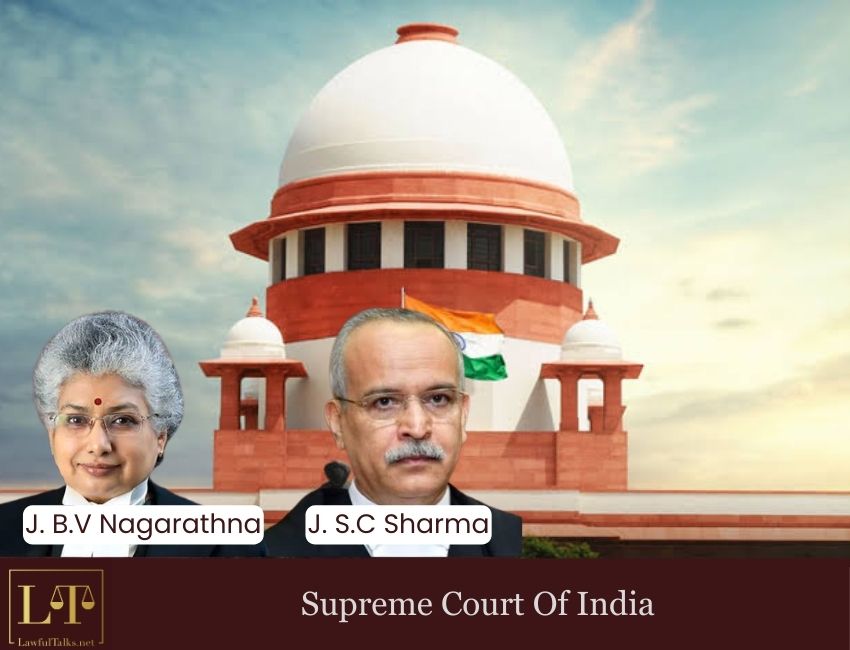Allahabad HC Sets Aside Afzal Ansari's Conviction, Allows Him to Continue as MP

SC: Disapproval of Marriage and Remarks to Lover Son's To End Life If She Can't Live Without Him Not Grounds for Abetment of Suicide
The Supreme Court has provided relief by quashing a criminal case for the offence of abetment to suicide against a mother who expressed disapproval of her son’s marriage and allegedly told her son's lover, along with her son, that if she could not live without him, she 'need not be alive'.

The bench of Justice B.V. Nagarathna and Justice Satish Chandra Sharma were dealing with a matter challenging the decision of the Calcutta High Court to quash the FIR under Sections 306 r/w 34 of the Indian Penal Code, 1860 (IPC) of other two co-accused while rejecting the application of the Appellant.
The bench primarily explained that when Section 306 IPC is read with Section 107 IPC, the following criteria must be present:
“(i) direct or indirect instigation;
(ii) in close proximity to the commission of suicide; along with
(iii) clear mens rea to abet the commission of suicide.”
Further, the bench relied on precedents of Ramesh Kumar v. State of Chhattisgarh [(2001) 9 SCC 618], which emphasized that instigation involves actions or omissions that intentionally provoke or incite someone to act, but mere angry or emotional words without intent or circumstances forcing the act cannot be deemed instigation, and Pawan Kumar v. State of Himachal Pradesh [(2017) 7 SCC 780], which held that mere allegations of harassment, casual remarks, or words spoken in anger do not constitute abetment under Section 306 IPC unless there is a direct, positive action that instigates the victim to commit suicide.
After the perusal of pronouncements, the bench was unable to agree with the High Court and Trial Court. The bench observed, “ Even if all evidence on record, including the chargesheet and the witness statements, are taken to be correct, there is not an iota of evidence against the Appellant.”
The court found that the acts of the Appellant are too remote and indirect to constitute the offense under Section 306 IPC and held, "It is discerned from the record that the Appellant along with her family did not attempt to put any pressure on the deceased to end the relationship between her and Babu Das. In fact, it was the deceased’s family that was unhappy with the relationship. Even if the Appellant expressed her disapproval towards the marriage of Babu Das and the deceased, it does not rise to the level of direct or indirect instigation of abetting suicide. Further, a remark such as asking the deceased to not be alive if she cannot live without marrying her lover will also not gain the status of abetment. There needs to be a positive act that creates an environment where the deceased is pushed to an edge in order to sustain the charge of Section 306 IPC.”
Accordingly, after due consideration, the appeal was allowed.
Case Title: Laxmi Das v. The State Of West Bengal & Ors.,Criminal Appeal No. 706 Of 2017
Advocate for Appellant(s): Mr. Kunal Chatterji, AOR, Ms. Maitrayee Banerjee, Adv. & ors
Advocate for Respondent(s): Mr. Sanjeev Kaushik, Adv., Ms. Astha Sharma, AOR & ors
Leave a Comment

Akshaj Joshi
Law Student
Latest Posts
Categories
- International News 19 Posts
- Supreme Court 326 Posts
- High Courts 339 Posts







































































































































































































































































































































































































































































































































































































































































































